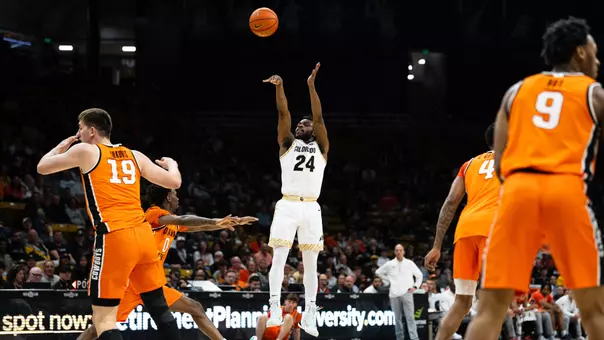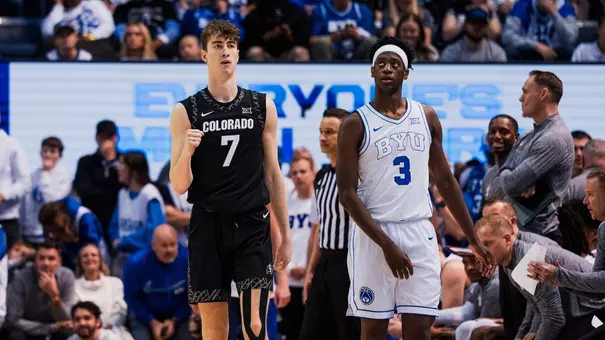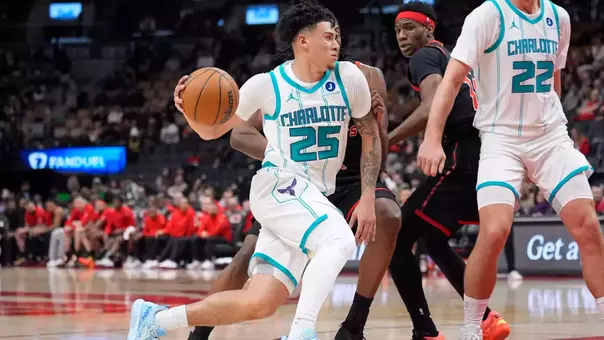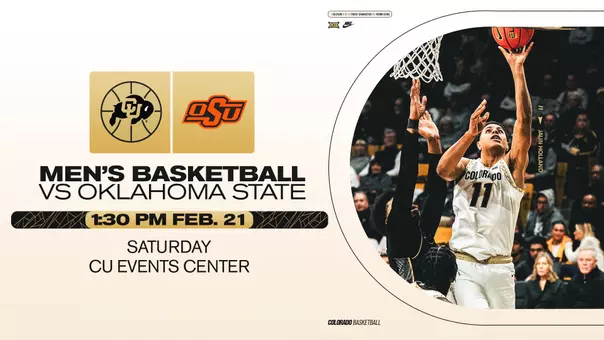Colorado University Athletics

Woelk: Young Buffs Will Learn From Tough Lessons
January 27, 2019 | Men's Basketball, Neill Woelk
BOULDER — It was just a week ago that Colorado basketball coach Tad Boyle uttered these words about his team:
"The future of Colorado basketball is bright. … I'm bullish on this team, I'm optimistic about this team. I believe in this team and I believe in our players."
Fast forward to late Saturday evening, after the Buffs let a nine-point second-half lead against Stanford melt away and turn into a 75-62 loss:
"Coaching this team is a challenge. … It's really become frustrating. I'm sure it's frustrating for the people who are listening or watching us play."
Welcome to Boyle's world. It is a maddening, exciting, infuriating, promising world that brims with potential and oozes exasperation — and oftentimes, all in the same night.
It is a world in which his team can fall behind by 17 on the road at New Mexico, then rally to win. A world in which his team can build an 18-point lead over Cal on the road, then let it slip away and have to claw and scratch to come away with a win down the stretch.
And it is a team that can build a nine-point second-half lead at Stanford and be within arm's reach of a critical, momentum-building road sweep — and then have it all melt away in the matter of 18 minutes.
It is the 2018-19 Buffs, and the guess here is that there will be more of those wild rides before this season comes to a close.
Understand that Boyle isn't one to make excuses. There is nobody — nobody — who is more frustrated with his team's roller-coaster tendencies this season.
But the fact of the matter is this is a young team that has been broadsided by injuries and other circumstances that have left it at far less than full strength.
The bad luck began early in fall practice, when 7-foot sophomore Dallas Walton went down with a knee injury. Walton, who had come on strong down the stretch last season, was going to be the Buffs' rim protector, CU's last line of defense in the paint. With Walton absent, teams have exploited that hole in Colorado's defense.
Meanwhile, just in time for Pac-12 play, the Buffs have lost the services of their only senior, Namon Wright (out of the season with a foot injury) as well as junior guard Deleon Brown (academically ineligible). Both were veterans who would have had significant roles in conference play.
It means the Buffs are down to nine available scholarship players — and one of them, sophomore Alex Strating, is averaging less than eight minutes per game on the floor and has played in just five of Colorado's seven conference games.
The result has been Boyle and his staff trying to manufacture a consistent lineup with a group of eight players that includes just one, junior Lucas Siewert, who has more than a year of Division I experience. The rest of the lineup? One junior college transfer, Shane Gatling; three sophomores, McKinley Wright IV, Tyler Bey and D'Shawn Schwartz; and three freshmen, Evan Battey, Daylen Kountz and Eli Parquet.
It means that basically half of Colorado's players are seeing the Pac-12 for the first time — and to be brutally honest, it shows. Consistency has evaded the Buffs all season long. They have had outstanding halves of basketball, moments when they play the game at a high level — and halves when they seemingly forget everything they did well in the previous 20 minutes.
But Boyle won't point to his team's youth as an alibi. As he noted after the Stanford game, the Cardinal's starting lineup included just one upperclassman. Neither will he lean on injuries as a reason for his team's inconsistency — after all, he'll say, they are part of the game. Every coach at some point in his career must deal with such unlucky streaks.
But what he will do is look at the rest of Colorado's schedule and note that there is plenty of opportunity on the horizon. In a league in which only one team — Washington — seems ready to separate itself from the pack, a strong finish could still put the Buffs at least in the top half of the league and in position to make a Pac-12 tournament run. The Buffs play seven of their final 11 conference games at home, where Colorado is 120-23 in his nine years in Boulder.
This week should provide a good barometer of what that stretch run could entail. The Buffs — 11-8 overall and 2-5 in Pac-12 play — host Oregon State (12-7, 4-3) on Thursday and Oregon (12-8, 3-4) on Saturday.
It is a schedule that lends itself to a strong finish, particularly for a team that has the talent to play with anyone in the league. McKinley Wright — even when hampered by a sore shoulder — is as good of a point guard as there is in the Pac-12. Bey is one of the league's most athletic players, as he is threatening to become the first Buff since Andre Roberson to average a double-double. Schwartz has shown flashes of becoming a player who can take over a game, Battey is steadily becoming a force underneath, and Siewert is an inside-outside threat.
The problem is, not all of those talents have clicked consistently — and the question is whether they can make that happen for not only back-to-back halves, but for a stretch of several games in a row.
The good news is there is time. Experience is the best teacher and the Buffs are learning each week. While the lessons are sometimes painful — excruciatingly so at times — they are nevertheless growing.
It is why these next 11 conference games will be worth watching, because when it does click, this is a team that can compete with anyone in the Pac-12.
But as for when that will come about … welcome to Tad Boyle's world.
Contact: Neill.Woelk@Colorado.edu
















